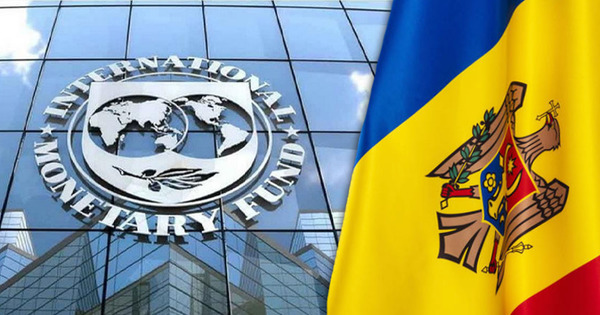The International Monetary Fund (IMF) mission and Moldovan authorities have reached an expert-level agreement on the policies needed to complete the sixth review of the program supported by the Extended Credit Facility (ECF) and Extended Fund Facility (EFF), as well as the second review under the Resilience and Sustainability Facility (RSF). As a result, Moldova will receive $148.3 million in financial support.
The announcement follows discussions over the past weeks led by Alina Iancu, head of the IMF mission, conducted in Chișinău, Washington, and online. These discussions focused on the sixth review of the ECF and EFF-supported program and the second review of the RSF-supported program.
“The Moldovan authorities and the IMF team have reached an expert-level agreement on the policies necessary to complete the sixth review under the ECF and EFF and the second review under the RSF. The IMF management and Executive Board will approve this agreement. Upon completion, Moldova will gain access to 111.4 million Special Drawing Rights (approximately $148.3 million), bringing total disbursements under current programs to around $810 million,” stated Alina Iancu.
Economic Outlook and Challenges
According to the IMF, Moldova’s economy is recovering from the impacts of the war in Ukraine and energy price shocks. Strong domestic demand is expected to drive economic growth to 2.6% in 2024 and 3% in 2025. As of October 2023, inflation has generally remained within the National Bank of Moldova’s target range of 5% ± 1.5%.
However, significant risks persist, particularly from the ongoing war in Ukraine and potential new energy sector shocks. On the positive side, faster progress in structural reforms, including the EU Growth Plan and Moldova’s EU accession efforts, could boost economic prospects.
Fiscal and Reform Progress
The IMF projects a reduced budget deficit of 4.4% of GDP in 2024 and 4.0% in 2025, reflecting higher-than-expected revenues driven by wage growth and increased imports. Public expenditures have remained largely unchanged, with a positive rebalancing toward investment for the coming year.
Progress has been made on quantitative indicators, but structural reforms remain uneven. Authorities have met conditions related to financial inclusion, insurance, and state-owned enterprises. Legislative amendments to strengthen the autonomy and governance of the National Bank of Moldova will be submitted to Parliament soon. Steps to establish an Anti-Corruption Court and properly staff the Anti-Corruption Prosecutor’s Office are underway.
The transition from subsidizing energy bills to targeted cash transfers was implemented in time for the heating season. Other RSF-related reforms are ongoing but will require more time to complete.
Next Steps
The IMF Executive Board will review Moldova’s program evaluations in mid-December. The current program, which runs until October 2025, includes two more evaluations.
This agreement marks another step forward in Moldova’s economic recovery and reform efforts, fostering resilience in the face of ongoing challenges.


